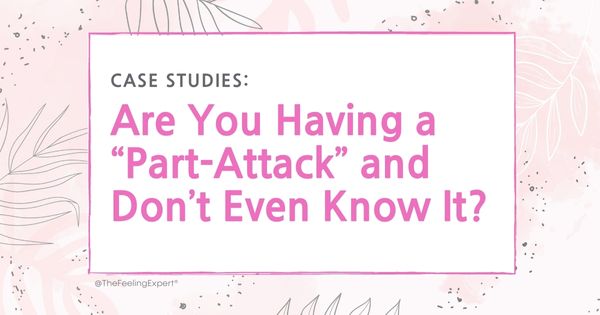
The Patient: James, a 40-something male who came to me wanting to build his self-confidence around issues he was having at work. James had been working for the same employer for more than seven years and had long desired a promotion, but his long hours and hard work seemed to go unnoticed. Every time he thought he should be recognized for his efforts he felt his boss would become critical of him and find ways to put him down or embarrass him. He was getting fewer rewarding assignments, while others less deserving than he were getting rewarded instead. He noted that a part of him was feeling unappreciated for his work, and another part of him was upset with his supervisor, while another part felt that he was never going to be good enough for a higher-ranked position. He was feeling depressed and having symptoms of anxiety.
The Diagnosis: Do you ever feel like a part of you is angry about a situation, but another part of you wants to apologize and move on? Or perhaps a part of you really wanted to go out with friends and a part of you made you stay home and hide from everyone instead. It is actually very common to have parts of you in conflict or parts that act out with emotions or expressions you are unable to control in those moments. This struggle can leave you feeling confused, stuck, uncertain, and even overwhelmed.
These episodes are signs of what I call a ‘Part-Attack.’ You may experience defensive or protective feelings, overreact with sadness, or explode with anger, feel insecure or want everything to be perfect. We all have different parts of ourselves: parts that protect, parts that react, and parts that carry old wounds, all of which are vying for position or prevalence in our psyche.
The Treatment: During my initial assessment, I recognized parts of James’ personality were in conflict and selected the Internal Family Systems (IFS) model of psychotherapy as a treatment approach. The IFS model works on the assumption that each person is comprised of a core “Self” that leads a person’s internal system, supported by a collection of various parts that govern our motivations and behaviors that work to support our needs at any given time or situation.
I introduced the IFS model to James and the concept of parts, exploring how his thoughts, feelings, memories, and sensations are all comprised of parts of him. This allowed us to better understand how James experienced himself and his interactions with others, like his associates and boss at work. We uncovered that James had parts that were behaving in extreme ways and were preventing him from taking on the better projects at work. Those were the parts that felt unappreciated, overlooked, self-critical, questioning himself, and the part that believed he wasn’t good enough.
Our work together brought up a traumatic memory for James of a time back in high school when he ran for class president and failed after getting nervous on stage and freezing during his speech. His classmates bullied him, and his deep sense of embarrassment and shame caused parts of him to diminish his self-confidence.
I explained to him how those parts were affecting the way he behaved and interacted with his supervisor, and how they were interfering with his confidence by reacting to his old trauma that was never healed. He was able to identify where this belief that he was not good enough came from, and why his parts reacted by being self-critical and always questioning his skills and value. He also could see how the parts connected with one another in their roles and were acting to protect him. The parts were acting in extreme ways to keep James from ever having to face humiliation again, but they were also keeping him from succeeding.
When James was up for a new assignment, he realized he was going into a trauma response of “fight or flight,” and reliving feelings from the past. His body felt the same nervousness and embarrassment from his failure on stage in high school. Motivated by fear, he would begin criticizing himself as an act of protection to prevent others from criticizing and shaming him.
We all have an inner critic—which can help us to be better—but James’s critic, that wounded part, had gone to extremes to “protect” him from failing and being humiliated once again, thus inhibiting his success. Oftentimes, when we face a traumatic event in childhood we don’t have the support we need to process the intense feelings, so they get buried deep down and hidden away, often to come back when we least expect them.
Results: Through the IFS approach, I was able to guide James to uncover and heal the parts that felt unappreciated, overlooked, self-critical, questioning himself, and believed he wasn’t good enough. We were able to focus on how the old beliefs and emotions were impacting his behaviors today. James was able to move forward with qualities that helped him lead with confidence.
Article is Published in Boca Club News.
The Feeling Expert is licensed to provide in-person, online video or phone holistic psychotherapy and mental health counseling throughout the state of Florida.
Sign up for tips and insights delivered straight to your inbox: Mindful Healing: Insights to Heal Your Past & Thrive. Get tips to help you as you heal from trauma, connect with your authentic self, and create balance in your daily life.